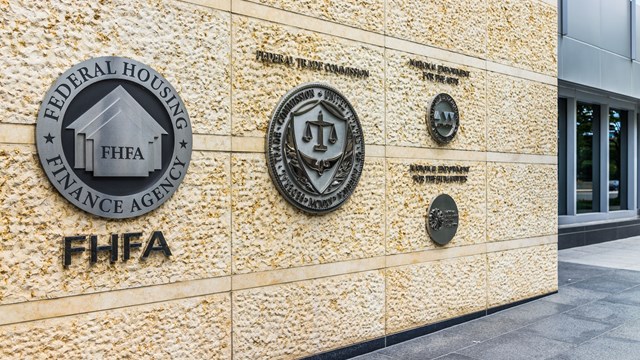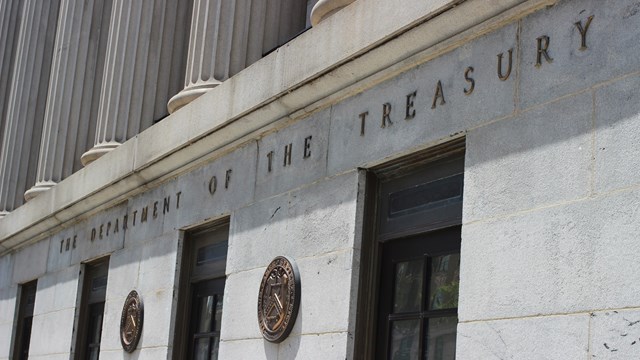
Even though 2022 started off with a backlog of court proceedings and legislative sessions after months of COVID closures and related scheduling issues, a number of cases and bills of interest to the multifamily housing community have gone through or are in the process of being decided. Here are some that boards, managers, owners, and residents should follow:
NY Co-op’s Procedural Choices Hinder Its Damages Claim
Attorneys Deborah Koplovitz and Andrew Freedland, partners in New York City law firm Herrick, Feinstein, write in the New York Law Journal of a recent ruling in a case involving Brooklyn co-op Trump Village Section No. 4 and a shareholder it claims made misrepresentations on his purchase application that caused the co-op to waive its right of first refusal and thus incur monetary damages.
Koplovitz and Freedland point out that the substance and procedure of the claims that the co-op proffered might have played a role in the April 20, 2022 judgment for the defendant in the matter of Trump Village Section No. 4 v. Gene Vilensky a/k/a Gene Vilenskiy by Justice Ingrid Joseph of the Supreme Court, Kings County.
The case alleges that the defendant listed himself as the only occupant of the apartment he was applying to purchase in 2014, agreeing that any false information or omission of material information in the application could result in its rejection, revocation of its approval, or termination of the proprietary lease after closing.
After approving the application, thereby waiving its right of first refusal, the co-op discovered that the defendant (having since closed title on the shares) was renting his unit out on Airbnb, both in violation of the proprietary lease and in refutation of his application representations.
Rather than seeking to terminate the proprietary lease and recover possession of the defendant’s apartment in a landlord-tenant proceeding, the co-op sought monetary damages and rescission of its waiver to right of first refusal. Even though lower courts denied the defendant’s motion to dismiss, citing the misrepresentations the defendant made in his purchase application that caused the co-op to waive its right of first refusal, Justice Joseph found for the defendant, concluding that the co-op didn’t show sufficient proof of damages relative to its waiver of its right of first refusal, and that the rescission claim was not legally viable.
As Koplovitz and Freedland contend, Trump Village Section No. 4’s “choice to request rescission of the occupancy agreement instead of pursuing a holdover case appears to have been a time-consuming and likely costly one, since Justice Joseph also awarded legal fees to Mr. Vilensky as the prevailing party.”
Condo’s 10-Yr Legal Battle Against Lowell, MA Nears End
Grand Manor Condominiums in Lowell, Massachusetts, was built in the 1980s. According to reporting in the Lowell Sun, residents there were unaware that they were living on top of a municipal landfill dating to the 1940s and 1950s until a 2008 drainage system installation at the site. Only then was it discovered that the property’s soil contained hazardous materials including lead and arsenic.
In 2009, according to the Sun, the state Department of Environmental Protection declared the city of Lowell to be responsible for the cleanup as well as for the decrease in home values at Grand Manor. The condo association then sued the city for that loss in 2012. A trial began in 2016 after the parties could not reach an out-of-court settlement.
The jury in that trial sided with the city, saying that the statute of limitations had expired. The condo association appealed in 2017, claiming that it had filed its suit well within the statutory period. The Supreme Judicial Court agreed and remanded the case back to the Lowell Superior Court for another trial in 2018.
In that trial, the association sought $2.8 million in property damages associated with the reduced home values due to being situated on hazardous soil. Although the jury sided with the plaintiffs, it awarded the condo only half that amount—just over $1.4 million, according to the Sun. Attorneys for the association moved to add prejudgment interest to the award, which would accrue since the trial began in 2012. While the court accepted the city’s motion to deny that interest, Grand Manor appealed and was granted 12% simple interest by the Massachusetts Court of Appeals, meaning that the 31 plaintiffs will receive an additional $170,346 for every trial year since 2012.
A final court order is expected soon, according to the Sun.
Meanwhile, Lowell is in its “final remediation” phase of cleanup at the site, according to senior environmental planner Sarah Brown, followed by a plan for routine soil sampling.
“We have to go through a public procurement process here at the city, we have to put the project out to bid, so that will be the next step,” Brown tells the Sun. “We actually haven’t discussed how frequently we were going to conduct that sampling. Once we install the system, we have to get it started first and we have to see what those initial results are first before we determine what our sampling program is going to entail.”
Recent NYC Case Reaffirms the Business Judgment Rule
In the 2021 case of 800 Grand Concourse Owners v. Thompson, the co-op board voted to terminate a shareholder’s stock and lease due to the shareholder bringing a series of frivolous and duplicative lawsuits against the board and its members. This resulted in the board incurring considerable expense and the loss of insurance coverage. (For more on the damage that frequent and ongoing litigation can do to a community, see this issue’s companion article, “The Impact of Litigation in Co-ops, Condos, & HOAs.”)
Attorney Geoffrey Mazel, founding partner of New York law firm Hankin & Mazel PLLC and counsel and executive member of the Presidents Co-op & Condo Council (PCCC), says, “The court specifically noted that the board followed proper procedures and had acted in good faith within the scope of their authority and in the best interests of the other shareholders. In addition, the court noted that the shareholder was provided multiple opportunities to be heard, to defend, and to abate the objectionable conduct. In light of all this, the court found that the board’s decision to terminate the shareholder’s stock and lease was protected by the Business Judgment Rule, and deferred to the board’s finding and decision.”
SAFER in Condos Act Proposes HUD Loans for Structural Repairs
U.S. Representatives Charlie Crist (D-Fla.) and Debbie Wasserman Schultz (D-Fla.) introduced the Securing Access to Financing for Exterior Repairs (SAFER) in Condos Act earlier this year, in response to the catastrophic condo collapse in Surfside, Florida in June 2021 that killed 98 people. Described as “legislation that will make it easier for condominium owners to afford special assessments for structural and safety repairs,” the Act proposes low-interest loans to fund repairs through two programs guaranteed by the U.S. Department of Housing and Urban Development (HUD).
Multifamily housing advocacy groups such as the Community Associations Institute (CAI) were involved in crafting and championing the legislation and praise its introduction. “Since the tragic condominium collapse in Surfside, Florida,” says Thomas M. Skiba, CAE, CAI’s chief executive officer, “CAI has worked closely with state and federal lawmakers to introduce critical legislation that supports condominium safety for the millions of people who call these communities home. We are pleased that Reps. Crist and Wasserman Shultz have introduced this impactful legislation that helps us honor the memories of the 98 people who lost their lives last June and will help prevent another tragedy. We’re hopeful that the bill moves forward expeditiously.”
In a press statement, Rep. Wasserman Shultz says, “While we still mourn all those we lost in Surfside, the harsh reality is that untold numbers of aging condos just like Champlain Towers South may face similar structural safety problems… This legislation that Congressman Charlie Crist is leading will take meaningful steps to help prevent that from ever happening again by helping make it easier for condo owners to afford special assessments when costly structural and safety repairs arise.”
Defect Statute of Limitations Extended in NJ
Early in the year, Governor Phil Murphy signed into law an amendment to the New Jersey Statute of Limitations that effectively extends the time that planned real estate development associations—including condos and co-ops—have to file certain claims against developers. Specifically, it sets the start of the six-year clock to the date that the owners/shareholders take control of the board, rather than the date of substantial completion of the development.
Thought to be a reaction to the 2017 New Jersey Supreme Court decision in Palisades at Fort Lee Condominium Association v. 100 Old Palisade, LLC, the amendment echoes similar legislation making its way through the Massachusetts Legislature, as mentioned in our 2021 Legal Roundup (https://newenglandcondo.com/article/legal-legislative-roundup). The Palisades decision set substantial completion as the date by which the six-year accrual starts, but also applied the discovery rule to such cases, meaning that the date on which any owner—even if it is the developer—knew or should have known of the defect would begin the accrual, even if the subsequent owner did not learn of the defect until a later date. This effectively shortened the time the unit-owner-controlled association had to file suit.
Now that the law in New Jersey tolls the statute of limitations on a defect claim to when the unit owners take control of the board, “it’s a real sea change,” says Scott Piekarsky, partner at Hackensack law firm Phillips Nizer LLP. “This amendment really benefits community associations and owners. Of course, it doesn’t affect a case that was already subjected to a final judgment, a dismissal,” he continues, “and we still do have out there this 10-year construction statute of repose, which provides that all construction defect claims must be brought within 10 years of substantial completion. You might have some interplay—that’ll remain to be seen—but this new legislation now signed into law is a terrific thing for communities in this state.”
Darcey Gerstein is Associate Editor and a Staff Writer for New England Condominium.






Leave a Comment